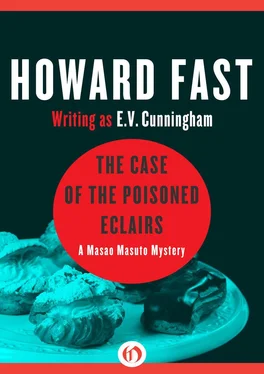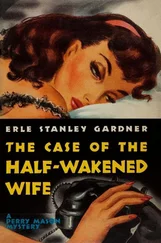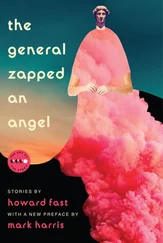Howard Fast - The Case of the Poisoned Eclairs
Здесь есть возможность читать онлайн «Howard Fast - The Case of the Poisoned Eclairs» весь текст электронной книги совершенно бесплатно (целиком полную версию без сокращений). В некоторых случаях можно слушать аудио, скачать через торрент в формате fb2 и присутствует краткое содержание. Жанр: Полицейский детектив, на английском языке. Описание произведения, (предисловие) а так же отзывы посетителей доступны на портале библиотеки ЛибКат.
- Название:The Case of the Poisoned Eclairs
- Автор:
- Жанр:
- Год:неизвестен
- ISBN:нет данных
- Рейтинг книги:4 / 5. Голосов: 1
-
Избранное:Добавить в избранное
- Отзывы:
-
Ваша оценка:
- 80
- 1
- 2
- 3
- 4
- 5
The Case of the Poisoned Eclairs: краткое содержание, описание и аннотация
Предлагаем к чтению аннотацию, описание, краткое содержание или предисловие (зависит от того, что написал сам автор книги «The Case of the Poisoned Eclairs»). Если вы не нашли необходимую информацию о книге — напишите в комментариях, мы постараемся отыскать её.
The Case of the Poisoned Eclairs — читать онлайн бесплатно полную книгу (весь текст) целиком
Ниже представлен текст книги, разбитый по страницам. Система сохранения места последней прочитанной страницы, позволяет с удобством читать онлайн бесплатно книгу «The Case of the Poisoned Eclairs», без необходимости каждый раз заново искать на чём Вы остановились. Поставьте закладку, и сможете в любой момент перейти на страницу, на которой закончили чтение.
Интервал:
Закладка:
“What’s up, Sy?”
“Can you get away now?”
“If it’s important.”
“It’s important. I’m up on Mulholland Drive, half a mile west of Laurel Canyon. You’ll see my car and a sheriffs car and an L.A.P.D. car. I’m trying to get them not to touch anything or move anything until you get here, and they’re giving me a hard time because it’s their turf, not ours. But I think I can hold them if you get here in half an hour.”
“What have you got?”
“I got a body. But get up here and we’ll talk about it.”
4
The Chicano Kid
Mulholland Drive is a narrow, twisting, badly-paved two-lane road that runs across the ridge of the Santa Monica Mountains and the Hollywood Hills, from Cahuenga Canyon in the east to Topanga Canyon in the west. Although it is almost entirely contained within the city limits of Los Angeles, it presents a vista of wild brush and mesquite-covered hills as well as breathtaking views of both the city of Los Angeles and the San Fernando Valley-providing one drives it on a day when the smog is light enough to see anything at all. Nevertheless, its illusion of wilderness, combined with the fact that it bisects one of the most heavily populated cities in the United States, makes it a favorite scenic drive for tourists and a weekend outing place for the local residents.
At least twice a year, preferably during the winter months when there was little or no smog, Masuto’s wife Kati would pack a picnic lunch, and he would drive her and the two children to one of the lookout points on Mulholland. There they would eat their lunch and marvel at the great vista of valley and mountains spread out before them. He thought of this now as he raced along the Hollywood Freeway, his siren screaming-a sound he disliked intensely-his old Datsun shivering in protest against eighty miles an hour. He had to cut his speed as he turned off for Mulholland. Not quite half an hour, but forty-one minutes from the time he had received Beckman’s phone call in downtown Los Angeles to the cluster of cars on Mulholland was not bad time at all.
From a group of uniformed officers-there was a sheriff’s deputy and three L.A.P.D. cops, while a fourth uniformed officer waved the traffic on-Masuto heard Beckman’s booming voice: “There’s Masuto now. So you let the body lay there for an extra half hour. The kid’s dead. He’s not going to be any more dead.”
A white-coated ambulance man said, “You kept us sitting here like this was the only stiff in Los Angeles.”
“You got a radio. Stop yapping,” Beckman said.
“Are you Sergeant Masuto?” one of the Los Angeles cops asked him.
“Yes.”
“Well, this ain’t Beverly Hills. You can’t interfere like this. I damn near arrested that guy Beckman,” the cop said.
“It connects with our trouble. He wouldn’t let you move the body, is that it?” Masuto asked.
“That’s it. So will you go down there and see whatever he wants you to see and let us get out of here?”
“Down here, Masao,” Beckman said.
Beckman clambered down the mesquite-covered hillside, Masuto picking his way after him. Another ambulance man, holding a stretcher, stood in a tiny hollow where the body was wedged. It was a young Chicano boy, dressed in tee shirt, jeans, and sneakers.
“Shot once in the head, behind the ear-small caliber, maybe a twenty-two,” Beckman said.
“How long has he been dead?” Masuto asked the ambulance man. “Can you make a guess?”
“At least two days.”
“Some kids climbed down here and they spotted the body,” Beckman told him. “It doesn’t have to be our kid. This city’s filled with kids who do violence on each other, and maybe ten thousand of them wear blue jeans and tee shirts. But look up there at the broken branches, Masao.”
Masuto nodded. “Dumped over the side, out of a car.”
“That’s right. He gets into the car after he buys the pastry. Maybe he delivers it.”
“No. It had to be injected with the botulin. He didn’t deliver the pastry.” Masuto stared at the body again. “Chicano kids are killed, but not this way. Gang wars, bursts of violence. But not this way.”
“Can we get him out of here now?” the ambulance man asked.
Masuto nodded, and he and Beckman climbed back up to the road.
“Well, thank God that’s over,” the L.A. cop in charge said.
“What did he have in his pockets?” Masuto asked.
“We got to hold it for the investigators,” the cop replied.
“I know. Can we look at it?”
“Not much to look at. Just some money. Nothing else. No identification.”
“How much money?”
“Here,” he said, handing Masuto an envelope. “Count it yourself.”
Masuto counted it. “Twelve dollars and twenty-five cents,” he told Beckman. “It fits. He gave the kid another ten dollars. I suppose he invented another errand, and that’s how he got the kid into the car.”
“It could be. He’s one cold-blooded bastard, Masao.”
“Do you guys know something about this killing?” the L.A. cop asked. “If you do, one of you ought to hang around until the investigators show up.”
“When will that be?”
“Any time now. We run a busy city. It’s not Beverly Hills.”
“We’re getting there,” Beckman said. “Don’t put down Beverly Hills.”
“You stay with it,” Masuto said to Beckman. “Tail after the investigators. You can tell them what we’ve got, which is nothing. I don’t remember one like this. We have nothing-no lead, no motive, no direction.”
“We know one thing,” Beckman said.
“What’s that?”
“That this son of a bitch kills people the way we kill flies.”
“He’s insane. So are a thousand others walking around on the streets of this city. It doesn’t help now. Maybe later. See what you can find out about the kid. It’s possible that our killer just picked him up on the street; it’s also possible that they had a previous acquaintance. Maybe the kid had friends and one of them saw something. It’s just barely possible that the money is a coincidence-possible, but not likely. So if you have a chance, poke around the bakery again. Get a death picture. I hate to use them, but someone around the bakery might recognize it.”
“I can get the bakery lady down to the L.A. morgue.”
“I wouldn’t put an old lady through that. Get the picture and show it to her. That ought to do it.”
“Where will you be?”
“Damned if I know,” Masuto said, shaking his head. “I’ll be at Laura Crombie’s house, but not until ten o’clock tonight.” Then he added, “I’ll call in. You’d better do the same.”
Masuto went back to his car, sat for a moment or two staring through the windshield, then took out his notebook and called headquarters on his radiophone.
“Polly,” he said to the lady who answered the phone, “this is Masao. Jot down this number.” He gave it to her. “Dial it and patch it through to me.”
“For you, Masao, it’s a pleasure.”
He always reacted in surprise at the fact that women liked him. He never thought of himself as likable or lovable, a tall, dour-faced second generation Japanese man, yet nothing pleased him more than this almost consistent response on the part of women. He pardoned himself; he argued to himself that he had a good wife whom he loved, that he was scrupulous in his behavior as a policeman, that he was content. Or was he?
This was no time to debate it. Laura Crombie’s voice came over the phone.
“This is Sergeant Masuto, Mrs. Crombie. There was a question I didn’t ask-at least I can’t remember asking it. Who received the pastry when it was delivered?”
“Didn’t I tell you? Ana did.”
Читать дальшеИнтервал:
Закладка:
Похожие книги на «The Case of the Poisoned Eclairs»
Представляем Вашему вниманию похожие книги на «The Case of the Poisoned Eclairs» списком для выбора. Мы отобрали схожую по названию и смыслу литературу в надежде предоставить читателям больше вариантов отыскать новые, интересные, ещё непрочитанные произведения.
Обсуждение, отзывы о книге «The Case of the Poisoned Eclairs» и просто собственные мнения читателей. Оставьте ваши комментарии, напишите, что Вы думаете о произведении, его смысле или главных героях. Укажите что конкретно понравилось, а что нет, и почему Вы так считаете.












